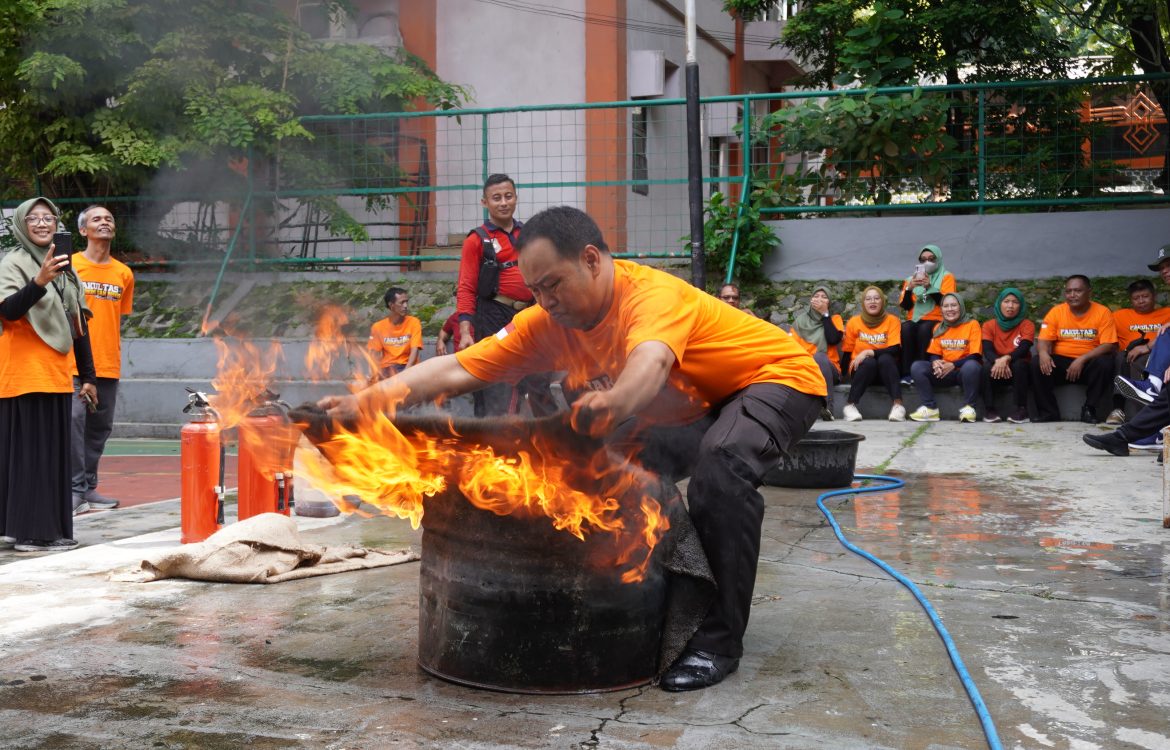
FEB UNS Academic Support Staff Participate in Fire Mitigation Training and Simulation Light Fire Extinguisher Usage
Mitigation is an action or effort made to reduce or control the risk or negative impact of an event or situation. Fire mitigation includes measures taken to prevent a fire or reduce its impact in the event of a fire accident.
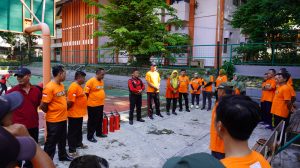 Examples include ensuring that buildings have safe evacuation routes, installing smoke detectors, and training human resources in the use of light fire extinguishers (APARs) and emergency procedures.
Examples include ensuring that buildings have safe evacuation routes, installing smoke detectors, and training human resources in the use of light fire extinguishers (APARs) and emergency procedures.
The Faculty of Economics and Business (FEB), Universitas Sebelas Maret (UNS), collaborated with CV. Bina Cipta Abadi held fire mitigation training and simulated the use of APAR after Morning Gymnastics, Friday 19 April 2024 at the futsal field in FEB UNS.
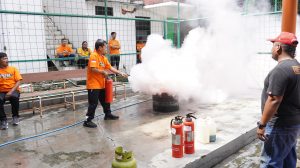 Fire mitigation training and simulation of the use of APAR is an important step in improving the safety and preparedness of the FEB UNS Academic Community in dealing with potential fire disasters. This training aims to equip the Academic Support Staff (Tendik) with the knowledge and skills needed to deal with fires quickly and effectively.
Fire mitigation training and simulation of the use of APAR is an important step in improving the safety and preparedness of the FEB UNS Academic Community in dealing with potential fire disasters. This training aims to equip the Academic Support Staff (Tendik) with the knowledge and skills needed to deal with fires quickly and effectively.
The Administrative Coordinator of FEB, Iwan Kusmartono, SH., in his remarks, said that training like this needs to be done regularly.
“This training needs to be carried out regularly because there is indeed an assessment process from the university on Environmental Safety, Security and Health (K3L) at the Faculty level. This is also to increase the ability of our Tendik’s colleagues, especially security personnel, thus they will not forget their duties and job functions. In addition, the academic support staff needs to know how to process if there is a fire emergency or short circuits. We hope everyone can follow the command from the instructor,” he said.
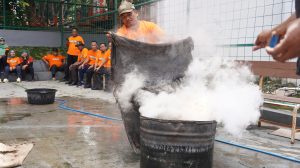
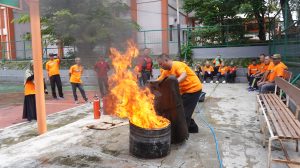 Iwan said, at the same time an inspection visit is scheduled for several buildings. It is possible to add the necessary tools so that FEB UNS can be fully equipped with all K3L facilities in the future.
Iwan said, at the same time an inspection visit is scheduled for several buildings. It is possible to add the necessary tools so that FEB UNS can be fully equipped with all K3L facilities in the future.
Meanwhile, Dr. Djuminah, Vice Dean of Human Resources, Finance, and Logistics, asserted that the first and foremost thing is that K3L is our basic capital, and K3L must be firmly attached to the institution’s culture.
“Hopefully, this activity will become a routine event, in line with the development or improvement according to the needs that may occur. Thank you to the team from the fire brigade for attending this training and providing a guideline, and all the staff for their joint training,” she said.
In the training, participants were taught how to prevent fires, fire extinguishing techniques, and the proper use of APAR. In addition, the training also includes knowledge of emergency measures to be taken when facing fire situations.
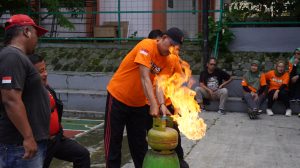
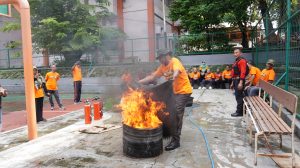 The instructor also explains how to isolate fire from oxygen, one of which is the traditional way of using gunny sacks, towels, or any type of fabric, as long as it is not synthetic fabrics.
The instructor also explains how to isolate fire from oxygen, one of which is the traditional way of using gunny sacks, towels, or any type of fabric, as long as it is not synthetic fabrics.
“If there is a fire, take burlap or towels or cloths around us, dip the water, and then tuck it into the fire. When tucking in, you should hold it by clamping the ends between the index finger and the thumb, then the palm is rotated, this is to protect us. Pay attention to the wind direction, if the wind direction is coming from the north, we should approach from the south. We should walk a bit oblique, don’t let the fire catch us. If you have gone forward, never go back again, you must be sure, because when you have gone forward and then back again, the fire will follow the direction of the cloth. Cover the fire with burlap, the fire will be extinguished,” he explained.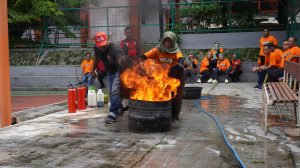
Next, he explains the steps to be taken in the event of a gas leak, among others: first, never turn on or turn off the electricity, because it will cause sparks even though small, it will be lighter, let any electrical appliance remain on if it is originally on and let the one turned-off remain off; second, open the doors and windows so that there is a large air circulation; third, remove the regulator and bring the gas cylinder out, wait for 15 minutes for the gas to completely ventilated, when there is no smell of gas, then the condition is safe.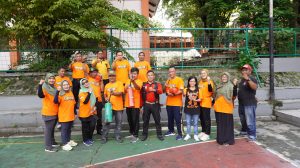
“If there is a fire, first and foremost, never panic. Usually, fires get bigger because we are panicked, immediately call the fire department, then rescue yourself or people around, and if possible rescue items that can still be saved. Some techniques that we have learned today in this training can be done,” said the instructor affirming.

